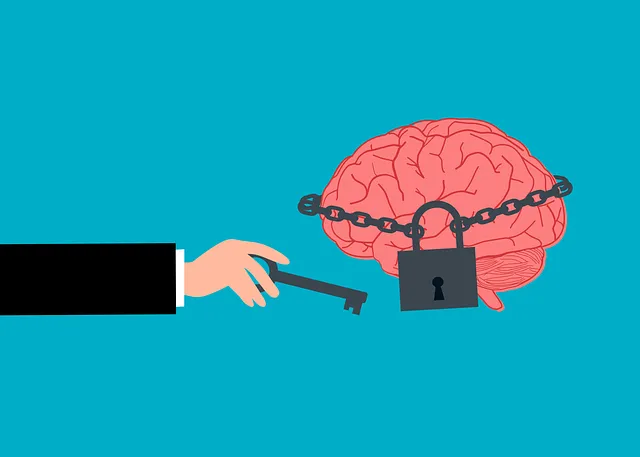Mental wellness apps, led by pioneers like Kaiser Permanente behavioral health services Englewood, are revolutionizing healthcare by offering accessible and personalized solutions for stress management, coping skills, and self-care. These apps bridge gaps in mental wellness care, benefit from cultural competency training, and help destigmatize mental health issues. Through holistic approaches like online therapy and support groups, Kaiser Permanente has transformed access to care, demonstrating the potential for impactful changes in mental wellness through digital tools. Effective mental wellness apps should offer personalized content, progress tracking, evidence-based practices, regular check-ins, and gamification, while adopting best practices like continuous improvement and robust security measures to protect user data.
In today’s digital era, mental wellness app development is transforming healthcare, addressing a pressing need in modern society. This article explores how applications designed for mental health support can significantly impact well-being. We present a case study of Kaiser Permanente Behavioral Health Services Englewood, demonstrating effective digital solutions. Furthermore, we delve into key components and best practices essential for creating successful mental wellness apps, highlighting their potential to revolutionize access to care.
- Understanding Mental Wellness App Development: A Need in Modern Healthcare
- Kaiser Permanente Behavioral Health Services Englewood: A Case Study for Effective Digital Solutions
- Key Components and Best Practices for Creating Successful Mental Wellness Apps
Understanding Mental Wellness App Development: A Need in Modern Healthcare

In today’s fast-paced world, mental wellness app development has emerged as a game-changer in modern healthcare. With organizations like Kaiser Permanente behavioral health services Englewood leading the way, there’s a growing recognition of the need for accessible and personalized mental health solutions. These apps cater to a wide range of users, offering support for everything from stress management and coping skills development to tailored self-care practices, all designed to improve overall well-being.
By integrating digital tools into traditional healthcare services, these applications aim to bridge gaps in mental wellness care, especially considering the cultural competency training that healthcare providers increasingly undergo. This shift reflects a broader societal move towards destigmatizing mental health issues and promoting proactive self-care. Consequently, mental wellness apps have become indispensable resources for both individuals seeking support and healthcare providers looking to enhance their services.
Kaiser Permanente Behavioral Health Services Englewood: A Case Study for Effective Digital Solutions

Kaiser Permanente Behavioral Health Services Englewood stands as a shining example of effective digital solutions in mental wellness. This initiative has successfully integrated technology to address various aspects of behavioral health, from burnout prevention to fostering positive thinking among its community. The program’s holistic approach includes online therapy sessions, support groups, and educational resources tailored to individual needs.
Through innovative use of digital platforms, Kaiser Permanente has expanded access to mental health services, reaching a broader spectrum of the community. Their successful implementation of a comprehensive Community Outreach Program further underscores the power of technology in enhancing behavioral health outcomes. This case study offers valuable insights into how organizations can leverage digital tools to create impactful changes in mental wellness, making care more accessible and effective for all.
Key Components and Best Practices for Creating Successful Mental Wellness Apps

Creating successful mental wellness apps requires a holistic approach, integrating various key components that cater to diverse user needs. At the core, these applications should offer personalized content and tools for self-assessment, tracking progress, and accessing evidence-based practices such as mindfulness exercises, cognitive behavioral therapy techniques, and resilience building workshops. Incorporating features for regular check-ins, interactive journaling, and gamification elements can enhance engagement, making mental wellness an enjoyable and accessible part of users’ daily routines.
Best practices for app development include leveraging evidence-based interventions shown to be effective by organizations like Kaiser Permanente behavioral health services Englewood. Regular feedback mechanisms, such as surveys and user reviews, allow continuous improvement based on real-world usage data. Additionally, ensuring privacy and security measures protect sensitive user information builds trust, encouraging open communication about mental health challenges. Incorporating resources for stress management workshops and promoting a sense of community through peer support groups can further enhance the app’s impact, fostering a supportive environment for users’ mental wellness journeys.
The development of mental wellness apps, as exemplified by Kaiser Permanente behavioral health services in Englewood, is a game-changing approach to modern healthcare. By leveraging digital solutions, these applications offer accessible and effective support for mental well-being. Incorporating key components such as user-friendly interfaces, evidence-based practices, and personalized experiences, developers can create successful mental wellness apps that cater to diverse needs. With the right best practices in place, these tools have the potential to revolutionize access to care, making it easier for folks to navigate their mental health journeys.






